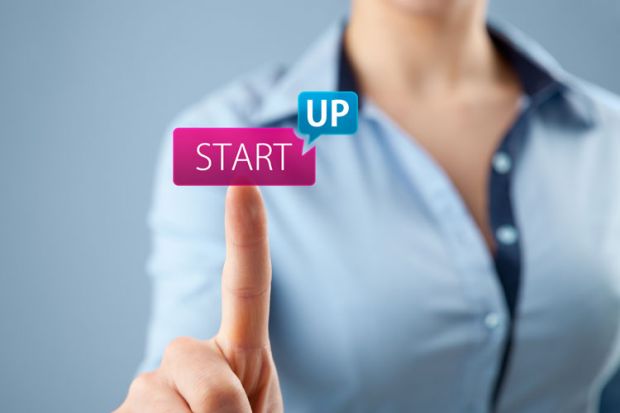There are pots of cash out there for start-ups, and with plenty of experience in preparing bids, I knew exactly how to apply for them. But this time the money would serve my interests, not those of the professor I served
The start of this story is a bit bleak but fear not; it has a happy ending.
Until November last year, I was on a three-year research contract. As many in higher education know all too well, fixed-term contracts mean a precarious existence.
As the end of my contract approached, I searched for a permanent job in higher education. It was not easy, given my CV as a researcher. At the last moment I secured a role, but in the end I felt I had to turn it down because it was too far from home.
This time, however, I had a secret weapon. I had been busy preparing another life.
It all started last spring, when I received an email from the university where I did my PhD inviting me, as an alumna, to go on a course. But this was not the sort of course with which I was familiar – it was about helping me to become a businesswoman.
Here, I thought, was an opportunity to develop a “plan B” – a strategy that is so often recommended to researchers, given the difficulty of finding a secure post in the academy. So I accepted. I’m very glad I did.
Within the first two days of the programme, which was partly funded by the European Union, I had learned how to register a limited company, manage accountancy, budget, promote, sell, build stock, get a website and commission. It all sounded rather expensive – but it was exciting. This would mean being in charge of my own destiny.
Using my creativity and research experience, I could bring in more money than an academic job ever could. I would not be buffeted about from pillar to post by the vagaries of research contracts or funding applications. Rather than waiting to receive money, I would make money.
After a painful set of paperwork, I was awarded start-up funding. I bought a laptop, manufacturing equipment and an accountancy software package. I soon discovered that there are more pots of cash out there for start-ups than you can throw a stick at, and with plenty of experience in preparing bids, I knew exactly how to apply for them. This time, however, the money would serve my interests, not those of the professor I served.
Yesterday was a business networking day. “Out here”, my PhD holds sway and my research is valuable. People take my card, offer advice and suggest collaborations. I’ve got offers of help coming out of my ears.
I am running consultancy services, developing an invention that experts have suggested should go to market. I have returned to my previous life as a professional artist and I have commissioned an app.
Best of all is the sense of ownership, power, control, potential and promise. I feel I can do anything.
Of course it is not a walk in the park. I have had to take a part-time job to maintain financial security while I build my business. I have folders full of insurance policies, an “interesting” relationship with my bank manager, books on accountancy lining my shelves, and I know every detail of pension scheme law. It has been full on.
But I’ve rented a little council-run office space with a lovely view and I’ve never felt so free and happy. This is living.
Meanwhile, a number of things are helping me to feel empowered but not excluded from what matters to me most of all: my research. I have visiting research fellow status and a contract to co-edit a handbook; I edit a journal, co-run an institute and speak at conferences and colloquia. I may fall further out of academic life as time goes on, but I will never give up on research.
The system for research is so full of holes that people fall through them. But that doesn’t mean that we cannot or will not land on our feet. Now I decide what happens. I say what matters. I’m in control. And it feels great.
Register to continue
Why register?
- Registration is free and only takes a moment
- Once registered, you can read 3 articles a month
- Sign up for our newsletter
Subscribe
Or subscribe for unlimited access to:
- Unlimited access to news, views, insights & reviews
- Digital editions
- Digital access to THE’s university and college rankings analysis
Already registered or a current subscriber? Login





